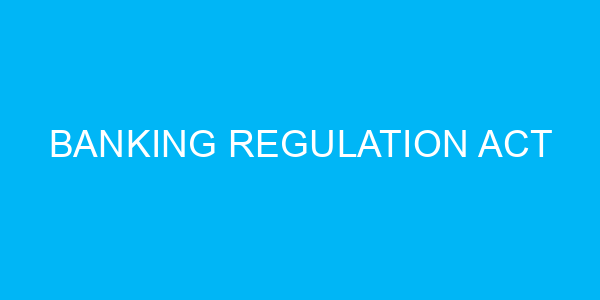16. The Banking Regulation Act, 1949 empowers the Reserve Bank of India to supersede the board of directors of a banking company and appoint an administrator if it is in the:
a) Interest of the depositors
b) Interest of the shareholders
c) Interest of the government
d) Interest of the competitors
17. The Banking Regulation Act, 1949 requires banks to maintain a certain percentage of their demand and time liabilities as:
a) Statutory Liquid Assets
b) Legal Liquid Assets
c) Cash Reserve Ratio
d) Statutory Reserve Ratio
18. The Banking Regulation Act, 1949 prohibits a banking company from making a loan to any of its directors or to any firm in which any of its directors has a substantial interest without:
a) Approval from the shareholders
b) Approval from the Reserve Bank of India
c) Approval from the Ministry of Finance
d) Approval from the Indian Banks’ Association
19. Under the Banking Regulation Act, 1949, every banking company must have a minimum paid-up capital and reserves of at least:
a) INR 10 lakh
b) INR 1 crore
c) INR 10 crore
d) INR 100 crore
20. The Banking Regulation Act, 1949 restricts the amount of voting rights a shareholder can have in a banking company to a maximum of:
a) 5%
b) 10%
c) 15%
d) 25%



